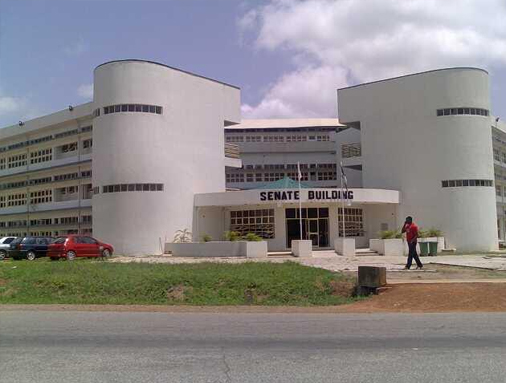By Adagbo Onoja
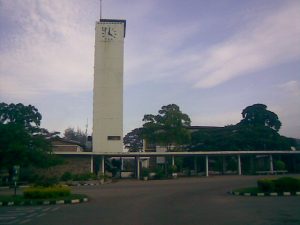
Nigeria’s signature university, the University of Ibadan but, like UNIABUJA, has it been given the resources to perform?
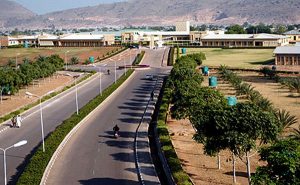
An angular view of Yobe State University, one of the newer ones with a newer actor in university education in Nigeria – state governments
A conception of reality in its contingent sense would always provide the basis for confidence in the coming of the Nigerian moment in history, notwithstanding what appears to be her dangerous descent at the moment. One such development must be the flurry of pronouncements on the education sector. How great it would have been if the declarations came late 2015 or early 2016. Nevertheless, they are welcome. Even if they are no more than a vote-seeking gambit, the pronouncements contain nuggets that would outlast the 2019 elections, irrespective of whoever wins. It should also be documented that, for the first time, it is government officials who are in the forefront of acknowledging how deformed the educational system has become. In that case, there has been a change of guard: the government itself has taken this advocacy over from the Academic Staff Union of Universities, (ASUU), what with the president saying at the 23rd, 24th and 25th combined Convocation Ceremonies of Abubakar Tafawa Balewa University (ATBU), Bauchi last Saturday that the demands of university workers were genuine, the Education Minister promising a state of emergency in the sector, the Minister of State for Education coming up with a frank rating of the university system recently and the National Universities Commission, (NUC) saying it is set to carry out reforms in the university system. It all appears there is something beautiful lurking in the horizon whatever the motif driving the confessions.
However, at what point and in which place did the rains start beating the educational system in question? In order that this sudden promise of good things can be enriched, that question deserves to be brought in or anything that reminds us of that. It is in that context that I tell the story below. Although Prof Raufu Mustapha, the main discussant in the story is dead and gone to where all mortals would go, three others who were at the table that day – Alhaji Sule Lamido, Malam Lawal Batagarawa and this reporter are still around. The story begins from the beginning.
In May 2000, a rebellious group led by a George Speight had seized the parliament in Fiji Island in the South Pacific. The Commonwealth of Nations was to discuss the crisis. Nigeria as a member of the Commonwealth Ministerial Action Group, (CMAG) was to attend the meeting. The Ministerial delegation headed for London for the purpose. Preliminary briefings for Sule Lamido, the then Minister for Foreign Affairs still showed gaps over which he was uncomfortable. So uncomfortable he threatened not to attend the meeting if the questions he wanted answered were not answered. Only God would know what he would have told the president upon his return from London without attending the meeting but the threat showed his discomfort with the questions he wanted adequately answered.
Your Excellency, there is a Nigerian here in the UK that I think can answer your questions, I said. Preliminary explanations offered, the permission was granted for me to invite Dr AbdulRaufu Mustapha, the Oxford Political Scientist who died recently.
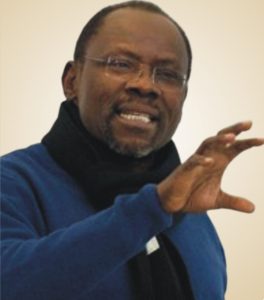
The late Prof AbdulRaufu Mustapha
Dr Raufu came to London from Oxford at the appointed time the following day and a discussion ensued between him and Lamido. He laid bare the strategic, racial, class and other variables underpinning George Speight led siege on the parliament, why he was consolidating and why everyone was granting his group all the concessions even as the powers with interest in the conflict – New Zealand, Australia, the United Kingdom and the United States – were unhappy about that. Lamido had recovered. I too had benefitted from the ‘lecture’ as it turned out. Before Raufu came, Lamido had said I would be the one to take him for lunch at the end of the discussion. But an obviously satisfied Lamido changed his mind and said he would now personally take him to the lunch. Malam Lawal Batagarawa, the then Minister of State for Education was also in London on his way to Moscow on educational issues requiring ministerial handling. He joined Lamido for the lunch. It was while eating that the question came up. It was from Lamido to Raufu: Why are you in the UK and not in Nigeria? He was asking Raufu why he should be in the UK whose children are already comfortable in the world, leaving those in need of knowledge back home without access to his brilliance.
It turned out a touchy question for Raufu but who was forthcoming. The long and short of his response was that when someone like him had to leave, it meant there were no options. Things, he said, had reached that point where one could do nothing anymore as a university teacher. His response was more detailed and he was communicating because the Minister was agreeing with him even as something about his testimony was not going down well with Mallam Lawal Batagarawa. There were certain things in what he was saying that, unknown to Lamido, was re-enacting the ideological divide at Ahmadu Bello University, Zaria between the Zaria Group and the Bala Mohammed Memorial Committee, (BMMC). Of course, Lawal Batagarawa was of the BMMC, the Yusuf Bala Usman group who controlled the Balarabe Musa government in Kaduna State between 1979 and 1981, a government for which Batagarawa suffered serious privations inflicted on him by elements of the National Party of Nigeria, (NPN) in Nigeria’s Second Republic.
Somehow, the discussion continued up to where the question of what is to be done cropped up. Raufu’s argument as far as one can recall was that, everywhere in the world, universities are regarded as national instruments. Using a review exercise then going on in the UK, he said, one way or the other, universities are instrumentalised. The interesting thing or what is unique is that the instrumentalisation is done in a reverse manner – instead of any crude control systems, universities are empowered and allowed to be but for the strategic reason of providing the society the high level of abstraction upon which society’s security depends. It is a task which demands induction into the tradition of bringing all sides of every question to the table towards the possibility of a balanced but not objective judgment. With that induction, the products of universities are supposed to be melted enough to be inherently critical but fair in all their judgment.

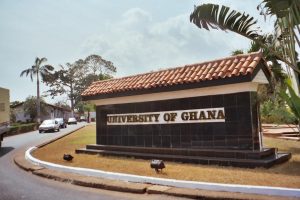 As such, university graduates may still be human after all but no matter how crazy they may be, society can rely on their judgment in terms of knowing the potentials as well as the implications of every course of action, knowing when to pull the stop, when an issue is not for brinkmanship and when or what not to tolerate. Raufu was saying, if this is not your strategic or big idea about universities, then you might be doing something else but not universities. In other words, he was saying that people who went to universities might not be necessarily more intelligent than people who didn’t but that people who went to universities have been processed to think in certain ways, making society more comfortable or secure with them.
As such, university graduates may still be human after all but no matter how crazy they may be, society can rely on their judgment in terms of knowing the potentials as well as the implications of every course of action, knowing when to pull the stop, when an issue is not for brinkmanship and when or what not to tolerate. Raufu was saying, if this is not your strategic or big idea about universities, then you might be doing something else but not universities. In other words, he was saying that people who went to universities might not be necessarily more intelligent than people who didn’t but that people who went to universities have been processed to think in certain ways, making society more comfortable or secure with them.
The launch thus turned out a reflective session for everyone if the interjections and interrogations that greeted him as he spoke measured the mood. That session came back to memory when President Buhari was saying last Saturday he has plans to make the universities great again. Was he thinking along this grand line or along something else? Of course, since Raufu spoke, many changes have taken place. The idea of the ‘entrepreneurial university’, for example, has sunk deep, even down to UK universities such as Oxford, Cambridge, London, Birmingham, etc. Still, most of these universities maintain a minimum strategic essence. By the president’s admission and those of his ministers, Nigeria’s universities have not kept to strategic essence. It means either there was no strategic essence in the first case beyond the glamour of having institutions of such stature or there was a very poor strategic essence or somebody or some institutions derailed the universities. And the derailment occurred to a point that some Nigerian academics are fearful that if care is not taken, Nigeria might come to terms with a Failed Universities Tribunal similar to the Failed Banks Tribunal experience more than two decades ago.
Great to hear promises of a new beginning, of a process of restoring the lost glory but what is at stake now? Anything as coherent even if not a replica of what Raufu articulated? Or is this just another season of giant buildings, well painted corners and flower planting fiesta signifying nothing strategic for a country that aspires to membership of the 20 strongest economies by some few magical years from here.

